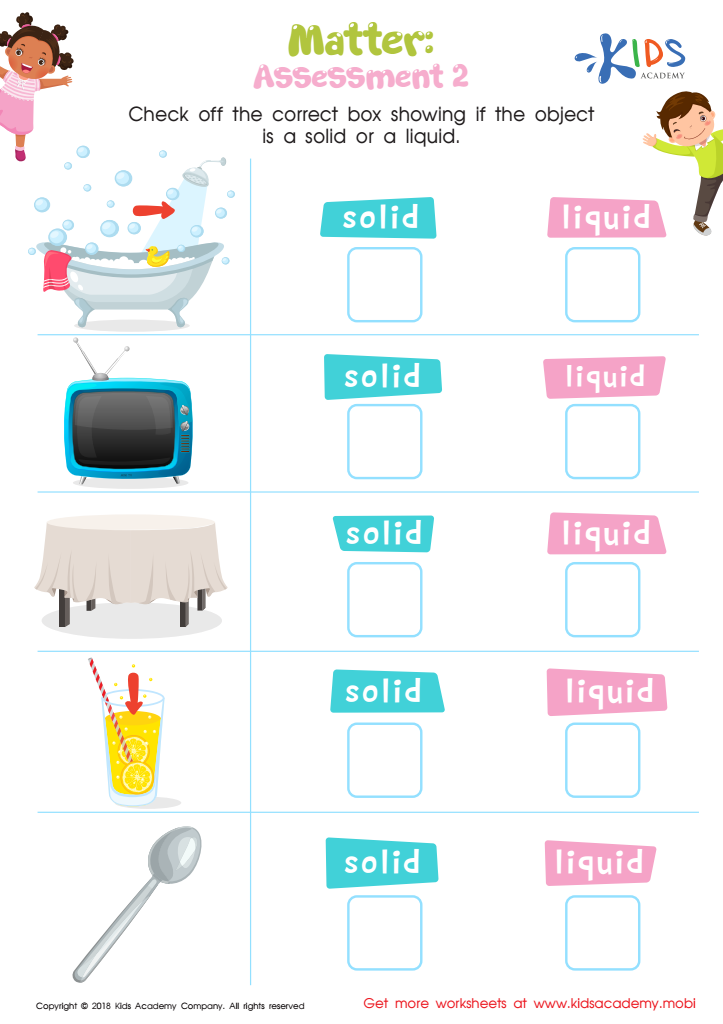Normal Science Worksheets Activities With Answers for Ages 4-9
10 filtered results
-
From - To
Explore our engaging "Normal Science Worksheets" designed for ages 4-9, featuring fun activities that make learning science exciting! Each worksheet encourages young learners to explore basic scientific concepts through interactive exercises such as experiments, observation tasks, and problem-solving questions. With clear answer keys provided, parents and educators can easily support children as they enhance their knowledge and boost confidence in science. These worksheets are perfect for at-home learning or classroom use, ensuring kids develop a strong foundational understanding of the world around them. Dive into hands-on science exploration today and foster a lifelong love of learning!


Matter: Assessment 1 Worksheet


Force and Interactions: Assessment 1 Worksheet


Space: Assessment 1 Worksheet


Ecosystems: Assessment 1 Worksheet


Light and Sound: Assessment 2 Worksheet


Animals and Plants: Assessment 2 Worksheet


Matter: Assessment 2 Worksheet


Ecosystems: Assessment 2 Worksheet


Space: Assessment 2 Worksheet


Animals and Plants: Assessment 1 Worksheet
Parents and teachers play a crucial role in shaping a child's curiosity and understanding of the world, making Normal Science Activities for ages 4-9 particularly important. Engaging students in hands-on scientific experiments fosters critical thinking, enhances problem-solving skills, and nurtures a lifelong love for learning. At this developmental stage, children are innately curious and eager to explore their surroundings, making it an essential time to introduce basic scientific concepts through fun and interactive activities.
By participating in these activities, children can learn foundational ideas in a practical context, connecting abstract concepts to real-world applications. Furthermore, these activities often promote teamwork, communication, and perseverance—skills necessary for success in all areas of life.
Providing answers alongside these activities is equally important, ensuring that adults can guide children effectively and help them deepen their understanding. By supporting science education early, parents and teachers also instill a sense of achievement and confidence in children. Ultimately, nurturing inquisitive minds today fosters the scientists, researchers, and informed citizens of tomorrow, making early science education a vital investment in the future.

 Assign to My Students
Assign to My Students
















